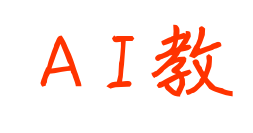“Difference and Repetition” by Gilles Deleuze ①
Difference and Repetition” by Gilles Deleuze is a complex philosophical work that explores the concepts of difference and repetition. In this book, Deleuze challenges traditional philosophical notions and offers a new perspective on these fundamental ideas.
Difference is a central concept in Deleuze’s philosophy. He argues that difference is not just a negative concept that defines things in relation to their opposites, but rather a positive and creative force. Deleuze suggests that difference is what makes everything unique and distinct. He emphasizes that we should not seek to reduce differences to similarities but instead celebrate the richness and diversity of the world.
Repetition, on the other hand, is another key concept in the book. Deleuze argues that repetition is not mere duplication or monotony but a process of becoming. He suggests that repetition is a way of creating new possibilities and variations. It’s not about repeating the same thing over and over but about exploring the potential for change within repetition.
Deleuze’s work challenges the traditional notion of identity. He argues that identity is often understood as something fixed and unchanging, but he proposes that identity is a product of difference and repetition. Identity is not a stable essence but a dynamic and evolving concept.
Deleuze also explores the concept of the “virtual.” He suggests that the virtual is a realm of potentiality that exists alongside the actual. It is not something unreal but a source of new possibilities and transformations. Deleuze’s philosophy emphasizes the importance of tapping into the virtual to create something new.
One of the key ideas in the book is the notion of a “becoming.” Deleuze argues that everything is in a state of becoming. This means that nothing is ever truly static or fixed. Everything is constantly evolving and changing. Deleuze encourages us to embrace this state of becoming and to engage with the world in a way that is open to new possibilities.
Deleuze’s work is highly influenced by the philosophies of other thinkers, such as Friedrich Nietzsche and Henri Bergson. He draws on their ideas to develop his own unique perspective on difference and repetition. Nietzsche’s emphasis on the will to power and Bergson’s concept of duration play a significant role in Deleuze’s philosophy.
In “Difference and Repetition,” Deleuze also discusses the concept of the “rhizome,” which is a way of understanding the interconnected and non-hierarchical nature of reality. He argues against traditional, hierarchical structures and proposes a more decentralized and interconnected view of the world.
Overall, “Difference and Repetition” is a challenging and profound philosophical work that offers a new way of thinking about difference, repetition, identity, and the nature of reality. It encourages us to embrace the creative potential of difference and repetition and to see the world as a dynamic and ever-changing place. Deleuze’s ideas have had a significant impact on contemporary philosophy and continue to be a subject of intense study and debate.
ジル・ドゥルーズ『差異と反復』 ①
ジル・ドゥルーズの『差異と反復』は、差異と反復の概念を探求する複雑な哲学書である。本書でドゥルーズは、伝統的な哲学的概念に挑戦し、これらの基本的概念に新たな視点を提供している。
「差異」はドゥルーズ哲学の中心的概念である。ドゥルーズは、差異とは物事をその対極にあるものとの関係において定義する単なる否定的な概念ではなく、むしろ肯定的で創造的な力であると主張する。ドゥルーズは、差異こそがあらゆるものを唯一無二のものにし、際立たせるものだと指摘する。彼は、差異を類似性に還元しようとするのではなく、世界の豊かさと多様性を讃えるべきだと強調する。
一方、「反復」は本書のもうひとつの重要な概念である。ドゥルーズは、反復とは単なる複製や単調さではなく、「なる」プロセスであると主張する。彼は、反復とは新たな可能性とバリエーションを生み出す方法であると示唆する。同じことを繰り返すのではなく、繰り返しの中にある変化の可能性を探るのだ。
ドゥルーズの作品は、伝統的なアイデンティティの概念に挑戦している。彼は、アイデンティティはしばしば固定された不変のものとして理解されるが、アイデンティティは差異と反復の産物であると主張する。アイデンティティは安定した本質ではなく、ダイナミックで進化する概念なのだ。
ドゥルーズはまた、”ヴァーチャル “という概念についても探求している。彼は、ヴァーチャルとは現実と隣り合わせに存在する潜在性の領域であると指摘する。それは非現実的なものではなく、新たな可能性と変容の源なのだ。ドゥルーズの哲学は、新しいものを創造するためにヴァーチャルを利用することの重要性を強調している。
本書の重要なアイデアのひとつは、”なりゆき “という概念である。ドゥルーズは、すべてのものは「なりつつある」状態にあると主張する。つまり、真に静的で固定されたものは何もないということだ。すべては常に進化し、変化している。ドゥルーズは、この「なりつつある」という状態を受け入れ、新たな可能性に開かれた形で世界と関わることを勧めている。
ドゥルーズの作品は、フリードリヒ・ニーチェやアンリ・ベルクソンなど、他の思想家の哲学に大きな影響を受けている。彼は、差異と反復に関する独自の視点を発展させるために、彼らの考えを利用している。ニーチェの力への意志の強調とベルクソンの持続時間の概念は、ドゥルーズの哲学において重要な役割を果たしている。
『差異と反復』では、ドゥルーズは「リゾーム」の概念についても論じている。これは、現実の相互関連性と非階層性を理解する方法である。彼は伝統的で階層的な構造に反対し、より分散的で相互連結的な世界観を提唱している。
全体として、『差異と反復』は挑戦的で深遠な哲学的作品であり、差異、反復、アイデンティティ、そして現実の本質についての新しい考え方を提示している。差異と反復の創造的な可能性を受け入れ、世界をダイナミックで変化し続ける場所として捉えるよう促している。ドゥルーズの思想は現代哲学に多大な影響を与え、今もなお激しい研究と議論の対象であり続けている。
“Difference and Repetition” by Gilles Deleuze ②
Difference and Repetition is a philosophical book by Gilles Deleuze, first published in 1968. It is one of Deleuze’s most important works, and it has been influential in a wide range of fields, including philosophy, literature, and art.
The book is divided into two parts. In the first part, Deleuze argues that difference is more fundamental than identity. He criticizes the traditional view of identity as a static, unchanging essence. Instead, Deleuze argues that identity is always in flux, and that it is constantly being differentiated from itself.
In the second part, Deleuze explores the concept of repetition. He argues that repetition is not simply the reproduction of the same. Instead, it is a process of difference and variation. Deleuze distinguishes between two types of repetition: actual repetition and virtual repetition. Actual repetition is the repetition of the same, while virtual repetition is the repetition of difference.
Deleuze uses the concepts of difference and repetition to develop a new understanding of time, space, and being. He argues that time is not a linear progression from past to present to future. Instead, it is a complex and chaotic process of difference and repetition. Space is not a static container, but a dynamic field of forces. And being is not a fixed essence, but a process of becoming.
Summary of the first part
In the first part of the book, Deleuze argues that difference is more fundamental than identity. He begins by criticizing the traditional view of identity as a static, unchanging essence. This view, he argues, is based on a false assumption that difference is merely the absence of identity. In reality, Deleuze argues, difference is positive and productive. It is the source of all creativity and change.
Deleuze supports his argument by drawing on a variety of sources, including mathematics, physics, and philosophy. He points out that in mathematics, the concept of difference is essential to the definition of number. In physics, the concept of difference is essential to the understanding of motion and change. And in philosophy, the concept of difference is essential to the understanding of being and becoming.
Summary of the second part
In the second part of the book, Deleuze explores the concept of repetition. He argues that repetition is not simply the reproduction of the same. Instead, it is a process of difference and variation.
Deleuze distinguishes between two types of repetition: actual repetition and virtual repetition. Actual repetition is the repetition of the same. It is the repetition of something that has already happened. Virtual repetition is the repetition of difference. It is the repetition of something that is still to come.
Deleuze argues that actual repetition is always haunted by virtual repetition. The repetition of the same is always accompanied by the possibility of difference. This is because actual repetition is never perfect. It is always marked by some degree of variation.
Deleuze uses the concepts of difference and repetition to develop a new understanding of time, space, and being. He argues that time is not a linear progression from past to present to future. Instead, it is a complex and chaotic process of difference and repetition. Space is not a static container, but a dynamic field of forces. And being is not a fixed essence, but a process of becoming.
Conclusion
Différence et répétition is a challenging but rewarding book. It is a work of great philosophical depth and originality. Deleuze’s concepts of difference and repetition have had a profound impact on the way we think about time, space, and being.
Here are some of the key ideas from the book:
- Difference is more fundamental than identity.
- Repetition is not simply the reproduction of the same.
- Actual repetition is always haunted by virtual repetition.
- Time is not a linear progression.
- Space is not a static container.
- Being is not a fixed essence.
ジル・ドゥルーズ『差異と反復』 ②
『差異と反復』はジル・ドゥルーズの哲学書であり、1968年に出版された。ドゥルーズの最も重要な著作のひとつであり、哲学、文学、芸術など幅広い分野に影響を与えている。
本書は2部に分かれている。第一部でドゥルーズは、差異とは同一性よりも根源的なものだと主張する。彼は、アイデンティティを静的で不変の本質とする従来の見方を批判する。その代わりにドゥルーズは、アイデンティティは常に流動的であり、アイデンティティは常にそれ自体から差異化されていると主張する。
第2部では、ドゥルーズは反復の概念を探求する。彼は、反復とは単純に同じものを再生産することではないと主張する。むしろそれは差異と変化のプロセスなのだ。ドゥルーズは2種類の反復を区別する:実際の反復と仮想の反復。実際の反復とは同じことの反復であり、仮想的反復とは差異の反復である。
ドゥルーズは差異と反復の概念を用いて、時間、空間、存在についての新しい理解を展開する。ドゥルーズは、時間とは過去から現在、未来へと直線的に進行するものではないと主張する。その代わりに、それは差異と反復の複雑で混沌としたプロセスである。空間は静的な容器ではなく、力の動的な場である。そして、存在とは固定された本質ではなく、なりつつあるプロセスなのだ。
第一部の要約
本書の第一部でドゥルーズは、差異とはアイデンティティよりも根源的なものであると主張する。彼はまず、アイデンティティを静的で不変の本質とみなす伝統的な見方を批判する。この見方は、差異とはアイデンティティの不在に過ぎないという誤った前提に基づいていると彼は主張する。実際には、差異とは肯定的で生産的なものだとドゥルーズは主張する。それはすべての創造性と変化の源である。
ドゥルーズは、数学、物理学、哲学など、さまざまな情報源を引きながら、自分の主張を支持している。数学では、数の定義に差異の概念が不可欠であると指摘する。物理学では、差の概念は運動と変化の理解に不可欠である。そして哲学においては、差異という概念は存在となりゆきを理解するために不可欠である。
第二部のまとめ
本書の第2部では、ドゥルーズは反復の概念を探求する。彼は、反復とは単に同じものの再生産ではないと主張する。むしろ、それは差異と変化のプロセスなのである。
ドゥルーズは2種類の反復を区別している:実際の反復と仮想の反復。実際の反復とは、同じことの反復である。すでに起こったことの反復である。仮想的反復とは差異の反復である。それは、まだ来ていない何かの反復である。
ドゥルーズは、実際の反復は常に仮想の反復に取り憑かれていると主張する。同じことの反復は、常に差異の可能性を伴っている。なぜなら、実際の反復は決して完全ではないからである。それは常にある程度の差異を伴っている。
ドゥルーズは差異と反復の概念を用いて、時間、空間、存在についての新しい理解を展開する。ドゥルーズは、時間とは過去から現在、未来へと直線的に進行するものではないと主張する。その代わりに、それは差異と反復の複雑で混沌としたプロセスである。空間は静的な容器ではなく、力の動的な場である。そして、存在とは固定された本質ではなく、なりつつある過程なのだ。
結論
『差異と反復』は挑戦的ではあるが、読み応えのある本である。哲学的な深みと独創性を備えた作品である。ドゥルーズの差異と反復の概念は、時間、空間、存在についての私たちの考え方に大きな影響を与えた。
この本から重要なアイデアをいくつか紹介しよう:
・違いは同一性よりも根源的である。
・反復とは、単に同じものを再現することではない。
・実際の繰り返しは、常に仮想の繰り返しに取り憑かれている。
・時間は直線的な進行ではない。
・空間は静的な容器ではない。
・存在とは固定された本質ではない。




コメント